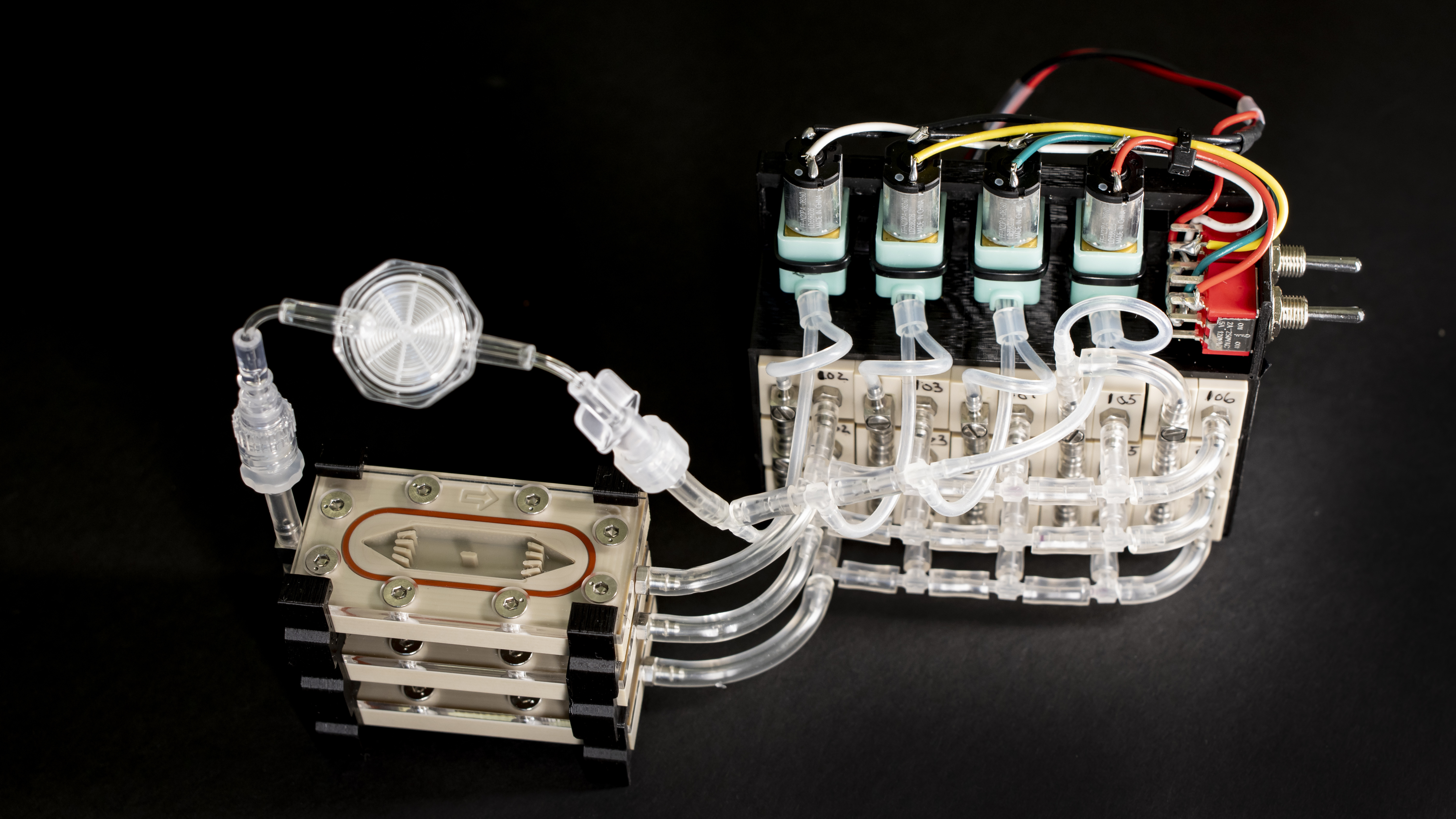BEP, Biological Experiments Procurement
-
 Liz Helena Froes CoelhoProsjektleder
Liz Helena Froes CoelhoProsjektleder -
 Lars Grytbakk KlukenProsjektdeltager
Lars Grytbakk KlukenProsjektdeltager -
 Sophie Labonnote-WeberProsjektdeltager
Sophie Labonnote-WeberProsjektdeltager -
 Achim GerstenbergProsjektdeltager
Achim GerstenbergProsjektdeltager -
 Ingrid Cecilie JenssenProsjektdeltager
Ingrid Cecilie JenssenProsjektdeltager
CIRiS is responsible for the development of experiment hardware for three experiments that will be performed onboard the International Space Station (ISS), under the overall project name the Biological Experiments Procurement (BEP). The work is performed in close collaboration with the subcontractors yuri GmbH, EIDEL Electronics and Airbus Defence and Systems. The three experiments investigate how microgravity (μg) effects human bone, muscles and immune responses on a cellular level.
Bone-Vessel Crosstalk - BVC
Bone-Vessel Crosstalk is a study of the molecular crosstalk between endothelial and bone cells in microgravity. This study aims to clarify the mechanisms involved in bone loss in the space environment. The molecular crosstalk between these cells may be altered in microgravity and it can interfere with the regulation of bone homeostasis.
To perform this experiment, Human Umbilical Vein Endothelial (hMSC) cells will be cultured alone or in the presence of endothelial cells (HUEVO). The cells will be exposed to two different mediums: a standard medium and an osteogenic medium. The osteogenic medium will contain a differentiation cocktail to induce the osteogenic differentiation in the hMSC cells. The cells will be cultured for 15 or 30 days in the experiment containers developed in this project. The experiment containers will be placed in the KUBIK facility onboard the ISS and the cells incubated at 37 °C in.

Somatic Hypermutation - SMH
The Somatic Hypermutation experiment aims to investigate whether somatic hypermutation of Ig genes is affected by spaceflight conditions. The hypothesis is that spaceflight conditions decrease the SHM frequency and, consequently, decrease antibody diversity, thus decreasing the efficiency of the immune response.
The experiment will be performed by culturing human Ramos cells in experiment containers developed in this project for incubation in the KUBIK facility onboard the ISS. The cells will be subjected to 1g and µg respectively, for 14 days and frozen (-80°C) at the end of the experiment.
Nerve Muscle Co-Culture - NEMUCO
NEMUCO is an experiment investigating how the molecular mechanisms involved in neuromuscular junction formation, stability and plasticity is affected by μg exposure. It also aims at developing a better mapping of a set of μg-induced specific genes involved in synapse formation, maturation and stabilization of the neuromuscular junction that may be responsible for the disuse-induced skeletal muscle atrophy reported in most of the astronauts participating to long-term spaceflight programs.
The cells will be incubated in the BIOLAB facility on board the ISS in experiment containers developed for this experiment specifically and integrated with two types of Experiment Unique Equipment (EUE), the standard EUE and the microscope EUE. All Culture Chambers that are part of the EUE, have functionality for medium refreshment and chemical fixation. Gas exchange will be supplied to the NEMUCO ECs by BIOLAB and internally distributed to the cell cultures through membranes in the Culture Chambers. The cells are cultured for 10 days at a temperature of 35°C ± 3.5°C. After the experiment run the samples will be fixated with either NOTOXhisto or RNA-later and stowed at respectively 4 °C and -80°C.